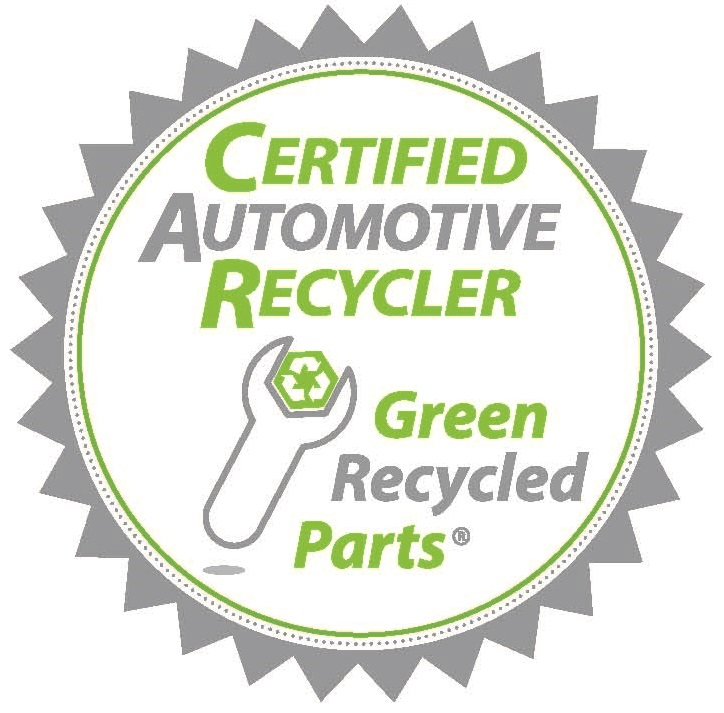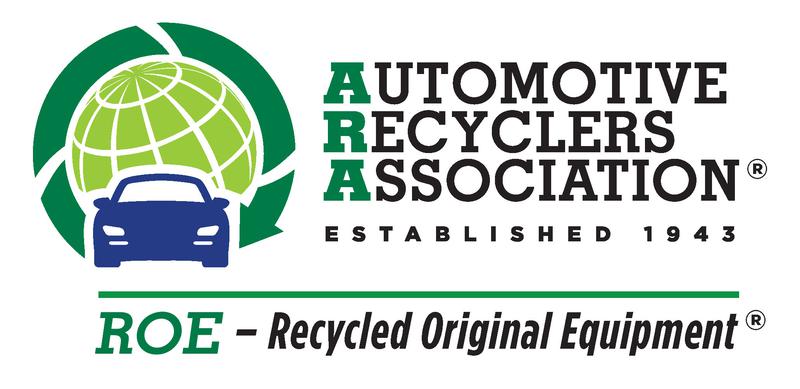Certified Auto Recyclers
Many professional automotive recyclers use a certification program to attain and maintain compliance with environmental, safety and transportation rules applicable to salvage facilities. The Automotive Recyclers Association (ARA) Certified Auto Recyclers (CAR) program sets a standard of excellence as the path to compliance.
The Indiana - Certified Auto Recycling Exemplary Standards (IN-CARES) program is the state program affiliate to the ARA CAR Program. IN-CARES meets the ARA CAR program standards and are specific about the Indiana regulations governing waste management, permitting and safety in the state.
Regulatory Agency
The Indiana Department of Environmental Management (IDEM) was established in 1986. Since then, IDEM has grown to employs some of Indiana's most qualified engineers, scientists and environmental project managers specializing in air, land, pollution prevention and water quality issues. Staff members provide environmental oversight and technical assistance around the state. IDEM is the regulating body for Indiana auto recyclers' waste management and stormwater permitting. https://epa.illinois.gov/
To help auto salvage/recyclers understand the environmental regulations that apply to them, IDEM created the Auto Salvage Recyclers Workbook (downloadable in PDF). For more information, contact the Indiana Department of Environmental Management (IDEM) Auto Salvage Program Visit https://www.in.gov/idem/ctap/
The Environmental Protection Agency (EPA) Region 5 serves Illinois, Indiana, Michigan, Minnesota, Ohio, Wisconsin and 35 Tribes from headquarters in Chicago, IL. https://www.epa.gov/aboutepa/epa-region-5
US EPA Region 5
Ralph Metcalfe Federal Building
77 West Jackson Blvd.
Chicago, IL 60604
312-353-2000
EPA in Indiana https://www.epa.gov/in
Stormwater Regulation
Without appropriate storm water pollution prevention and control measures, storm water run-off will transport debris, chemicals, and other pollutants. Storm water run-off may contain sediment, nutrients (phosphorus and nitrogen), heavy metals (lead, zinc, copper, cadmium, nickel, iron), pathogens (bacteria), toxins, and oxygen-demanding substances. One way IDEM regulates such storm water run-off is through 327 IAC 15-6 (Rule 6) (Select Rule 6, Storm Water Discharges Exposed to Industrial Activity from the index or Scroll to page 23).
Industrial storm water permits are required for facilities where activities of the industrial operation are exposed to storm water and run-off is discharged though a point source to waters of the state. The general permit applies to specific categories of industrial activities that must obtain permit coverage. Determination of applicable industrial activities is based on a facility’s Standard Industrial Classification (SIC) Code(s) or facility activities included in the listed narrative descriptions within the rule.
Spill Reporting
Under IDEM's Spill Rule, a spill is defined as a release of more than one pint or one pound of an objectionable substance that could threaten to enter the ground water or surface water of the State of Indiana. Spills that occur on your property must be immediately cleaned up and properly disposed.
Not all spills are reportable. As a general rule, all spills should be reported if they:
• Create a risk to public health from fire or explosion;
Create a risk to public health from fire or explosion;
• Are not contained within a building;
Are not contained within a building;
• Come in contact with soil or water; or
Come in contact with soil or water; or
• Leave the property, or threaten to enter the waters of Indiana (including ground water).
Leave the property, or threaten to enter the waters of Indiana (including ground water).
If you determine that the spill must be reported, do so by calling IDEM's Environmental Emergency Hotline as soon as possible, but no later than two hours after the incident, by calling 317/233-7745 or toll free at 888/233-7745.
If the hazardous condition involves the release of an EPA regulated material or an oil as defined by the EPA, the release may also need to be reported to the National Response Center at (800) 424-8802. Federal Reporting is required within 15 minutes of event occurrence or discovery.
Resources
National Small Business Environmental Assistance Program
The 1990 Clean Air Act Amendments required states to develop programs to help small businesses comply with air quality regulations through a small business environmental assistance providers' programs (SBEAP). Many state technical assistance programs have expanded their air quality focus to provide technical assistance in other environmental areas.
Services provided by these organizations for small businesses include multi-media environmental compliance and pollution prevention (P2). P2 services help businesses reduce emissions at the source, often reducing regulatory burden and sometimes saving money.
To access these free, often confidential services and see which ones your state offers, locate your state program at
P2Rx is a national partnership of regional pollution prevention information centers funded in part through grants from EPA. P2Rx builds networks, delivers P2 information, and measures P2 program results.
The Great Lakes Regional Pollution Prevention Roundtable (GLRPPR) serves the Great Lakes region of the United States (Illinois, Indiana, Michigan, Minnesota, New York, Ohio, Pennsylvania, and Wisconsin) and Canada (Ontario).
GLRPPR projects include:
A series of guides developed for small business is available at the Portal to resources developed by the GLRPPR including the Pollution Prevention 101 and the Green Business Guide.
The following fact sheets are designed to assist automotive recyclers with operating their businesses and managing their wastes in compliance with the environmental laws in their state. Select from the list below.
Congratulations CAR STAR Award Winner 2016!
CAR Certification standard of excellence highest achievement.







